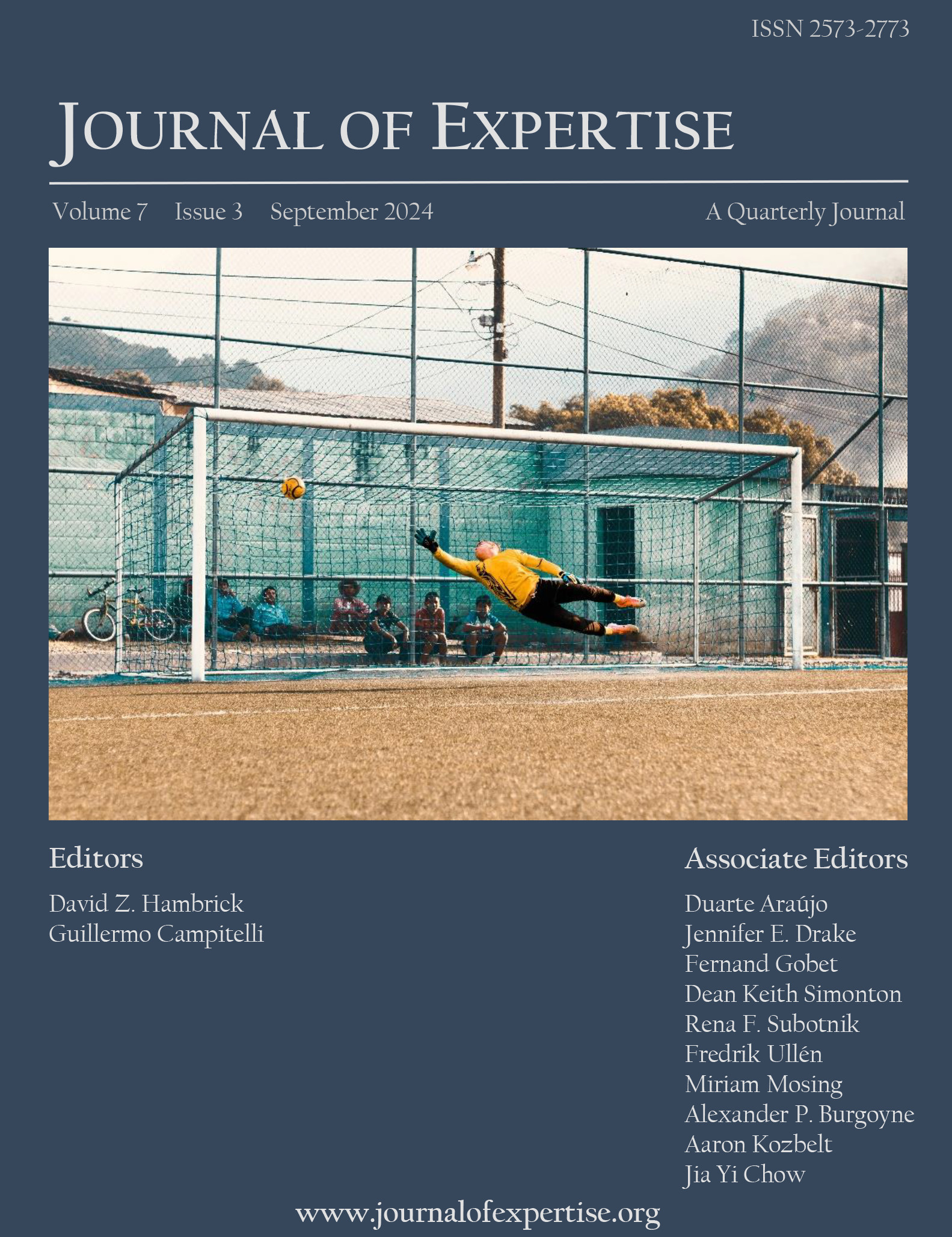Expertise and Decision-making: An Analysis of Expert Capacities through the Iowa Gambling Task
Romain Trincherini 1and Virginia Postal 2
This research conducted with chess players and non-chess players examines the efficiency of decision-making capacities of both populations. Experts are characterized by superior performances by individuals in a wide range of domains. Salthouse (1991) has shown that decision-making capacities could be an important aspect of expertise in many fields, including chess. In this study, decision-making capacities were tested through a computerized version of the Iowa Gambling Task (IGT, Bechara et al., 1994) on a population differing in terms of expertise level in chess. Our study shows that expert chess players attain better IGT results than non-chess players or amateur chess players. A complementary cluster analysis, rarely used in IGT research, revealed differences in terms of strategies between our three experimental groups.

